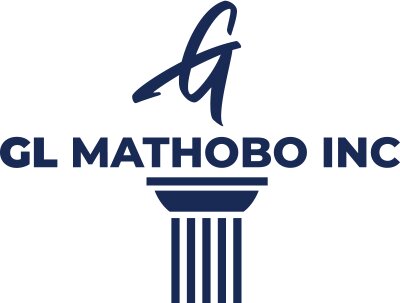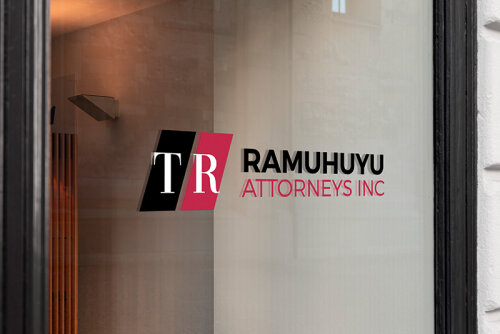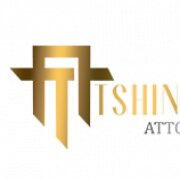Best Water Law Lawyers in Thohoyandou
Share your needs with us, get contacted by law firms.
Free. Takes 2 min.
List of the best lawyers in Thohoyandou, South Africa
About Water Law in Thohoyandou, South Africa
Water Law in Thohoyandou, a town located in the Limpopo province of South Africa, is governed by national frameworks alongside provincial and municipal regulations. The central piece of legislation is the National Water Act 36 of 1998, which seeks to sustainably manage water resources while balancing the needs of individuals, communities, agriculture, businesses, and environmental protection. In Thohoyandou, the management and allocation of water are particularly important due to variable rainfall, growing population pressures, and the significance of agriculture in the local economy.
Local authorities such as the Vhembe District Municipality and the Department of Water and Sanitation play pivotal roles in enforcing legislation, issuing water use licenses, regulating water quality, and resolving water use conflicts. With both urban and rural settlements, water law enforcement in Thohoyandou involves unique challenges, often dealing with access to clean water, communal resources, and increasing competition for limited water supplies.
Why You May Need a Lawyer
Water Law can be notably complex given the interplay between national, provincial, and local regulations. Engaging a lawyer who specializes in Water Law might be crucial for several reasons:
- Disputes over water use, allocation, or rights between neighbors, community members, or commercial entities.
- Compliance with water licensing requirements for agricultural, landscaping, or industrial use.
- Challenges concerning pollution, contamination, or mismanagement of water sources.
- Land development or property transactions that involve water rights or borehole registration.
- Claims of access to clean and sufficient water as a constitutional right.
- Municipal or state actions that impact local water supplies or infrastructure.
- Assistance with public participation in decisions about local water projects or infrastructure upgrades.
A lawyer can help interpret the law, negotiate with authorities or other parties, draft or review contracts, ensure compliance, and represent clients in disputes or litigation.
Local Laws Overview
Thohoyandou residents and businesses must comply with several interconnected statutes and local by-laws concerning water:
- National Water Act 36 of 1998 regulates use, conservation, development, and management of water resources nationally, setting the framework for all water use licensing and protection.
- Water Services Act 108 of 1997 guarantees the constitutional right of access to basic water supply and sanitation services and places duties on municipalities regarding service provision and quality.
- Municipal By-laws in the Vhembe District Municipality further regulate issues such as water restrictions, connection processes, tariffs, borehole registration, discharges, and penalties for wastage or pollution.
- Environmental Management Acts intersect with Water Law when it comes to pollution, land use, and ecosystem protection.
- Local practices and customary law may also play a role, especially where communities or tribal authorities manage communal water resources.
Obtaining water use licenses, drilling boreholes, engaging in irrigation, or utilizing water for commercial purposes almost always requires applying to the relevant authorities and complying with set processes and requirements.
Frequently Asked Questions
What qualifies as water use under South African Water Law?
Water use includes activities such as taking water from rivers, dams, or underground sources, storing or diverting water, discharging waste into water resources, and altering watercourses. Many of these uses require prior authorization or a water use license.
How do I apply for a water use license in Thohoyandou?
Applications are made to the Department of Water and Sanitation. The process includes completing the relevant application, providing supporting documents, undergoing possible environmental assessments, and waiting for departmental review and approval.
Can I drill a borehole on my property?
Drilling a borehole generally requires permission from the local municipality and possibly a water use license, especially if it is for more than domestic use. There may also be requirements for registering the borehole and monitoring its use.
What should I do if my neighbor is overusing or polluting a shared water source?
You should first address the issue directly with your neighbor if possible. If unresolved, you can approach the local municipality or the Department of Water and Sanitation. Legal action or mediation may be necessary for ongoing disputes.
Is access to water a constitutional right?
Yes, the South African Constitution guarantees the right to sufficient water. Municipalities must ensure that communities have access to basic water services, subject to reasonable limitations and available resources.
What are the penalties for illegal water use?
Penalties can include fines, disconnection, confiscation of equipment, and criminal prosecution for serious violations. Persistent offenders may face civil actions or further legal consequences.
How are water tariffs and billing determined?
Water tariffs are set by the local municipality in line with national policy. Billing usually depends on the amount used and the size or category of the property or business. Disputes over billing can be addressed to the municipal customer services department or through formal complaint processes.
Can traditional or customary water rights still be enforced?
Customary rights may be recognized in cases where communities have historically managed and used water communally. However, these must coexist with national statutes and may not override laws requiring registration, licensing, or quality standards.
What should I do if a water supply is interrupted or contaminated?
Report the interruption or contamination to the Vhembe District Municipality or your local ward councilor as soon as possible. You may also contact the Department of Water and Sanitation for escalated matters involving health or environmental risks.
Who is responsible for resolving water disputes in Thohoyandou?
Initial resolution should be sought through the municipality. In complex or unresolved cases, the Department of Water and Sanitation, the Water Tribunal, and, if necessary, the courts may hear and decide on legal disputes involving water rights or usage.
Additional Resources
If you need further information or assistance about Water Law in Thohoyandou, consider the following resources:
- Department of Water and Sanitation - The national department responsible for water regulation, licensing, and policy.
- Vhembe District Municipality - Handles local water services, by-laws, tariffs, and customer complaints.
- Legal Aid South Africa - Provides free legal advice or representation to those who qualify.
- South African Human Rights Commission - Can intervene in cases involving the right to access water.
- Local law clinics and universities - May offer information, advice, or mediation services in water-related matters.
Next Steps
If you require specific legal advice or representation regarding Water Law in Thohoyandou, consider taking the following steps:
- Gather all relevant documents, such as water bills, correspondence, permits, denial letters, and photographic evidence.
- Contact the Vhembe District Municipality or the Department of Water and Sanitation to clarify your rights and procedures.
- Consult a lawyer who specializes in Environmental or Water Law to assess your legal position and possible courses of action.
- If affordability is a concern, reach out to Legal Aid South Africa or local legal clinics for assistance.
- Engage in mediation or negotiation where possible, but be prepared to pursue formal complaints or litigation if necessary.
Proper legal guidance will help you navigate the complex landscape of Water Law and ensure your interests and rights are protected.
Lawzana helps you find the best lawyers and law firms in Thohoyandou through a curated and pre-screened list of qualified legal professionals. Our platform offers rankings and detailed profiles of attorneys and law firms, allowing you to compare based on practice areas, including Water Law, experience, and client feedback.
Each profile includes a description of the firm's areas of practice, client reviews, team members and partners, year of establishment, spoken languages, office locations, contact information, social media presence, and any published articles or resources. Most firms on our platform speak English and are experienced in both local and international legal matters.
Get a quote from top-rated law firms in Thohoyandou, South Africa — quickly, securely, and without unnecessary hassle.
Disclaimer:
The information provided on this page is for general informational purposes only and does not constitute legal advice. While we strive to ensure the accuracy and relevance of the content, legal information may change over time, and interpretations of the law can vary. You should always consult with a qualified legal professional for advice specific to your situation.
We disclaim all liability for actions taken or not taken based on the content of this page. If you believe any information is incorrect or outdated, please contact us, and we will review and update it where appropriate.











